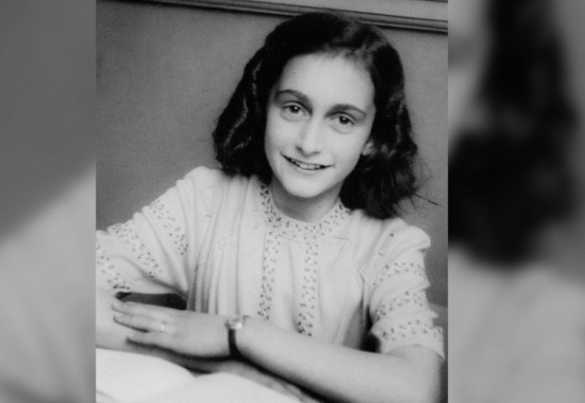An investigating team is convinced that Anne’s father, Otto Frank, knew who the traitor was, but chose not to reveal his name.
One of the remaining mysteries from the Second World War may have been solved after an international team of investigators revealed the name of the person who “very likely” betrayed young Jewish diarist Anne Frank.

The research group, which included historians, criminologists, psychologists, a handwriting expert and even a retired FBI special agent, conducted a scrupulous six-year-long analysis of events leading to the discovery of the concealed annex above an Amsterdam canalside warehouse, where Anne’s family hid for two years until August 4, 1944.
The researchers concluded the “most likely” scenario is that the Frank family were betrayed by Jewish notary Arnold van den Bergh. Lead investigator Pieter van Twisk is convinced that Anne’s father, Otto, who survived the Holocaust and later published his daughter’s diaries, knew the man was responsible but chose not to reveal the truth.
According to the Dutch newspaper NRC, which interviewed van Twisk, the research is the first of its kind and was conceived as a proper modern police investigation. It was funded partially by crowdfunding and by grants from the city of Amsterdam, private investors, and publishers.
Russia returns Jewish archives looted by Nazi GermanyREAD MORE: Russia returns Jewish archives looted by Nazi Germany
The team initially had about 30 versions of how events may have unfolded, but the massive list of names and lines of inquiry slowly shortened.
“Frank was very preoccupied with the anti-Semitism that resurfaced after the war. He was probably afraid that this would be used to say: look, those Jews did it all themselves,” van Twisk explained.
Arnold van den Bergh was a founding member of the Jewish Council, which helped to organize the deportation of Jews, and attended the meetings of the emigration department, which compiled the lists for deportation.
However, according to the researchers, he was motivated to give up the Frank family to save his own. Giving up such information was a way to protect himself and his own family, they said.
An anonymous letter received by Otto Frank after the liberation, pointing to van den Bergh, was analyzed and authenticated using modern methods. Researchers said the man had the knowledge, motive, and opportunity to give away the place where the Franks were hiding. Indeed, van den Bergh survived, as well as his family, and died of throat cancer in 1950.
The investigators admit the evidence collected would probably not be enough to convince a court, but they said it is the most convincing scenario they found.
“It is a circumstantial case, as many cases are. In today’s crime solving, they want positive DNA evidence or video surveillance tape. We can’t give you any of that. But in a historical case this old, with all the evidence that we obtained, I think it’s pretty convincing,” ex-FBI agent Vince Pankoke told CBS.
The details of the investigation have been described in a new book called The Betrayal of Anne Frank, by Rosemary Sullivan, as well as a CBS documentary.
